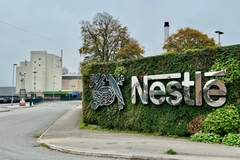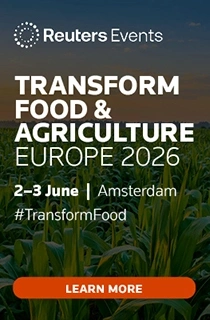
- Industry news
Industry news
- Category news
Category news
- Reports
- Key trends
- Multimedia
- Journal
- Events
- Suppliers
- Home
- Industry news
Industry news
- Category news
Category news
- Reports
- Key trends
- Multimedia
- Events
- Suppliers
Campaigners Criticize EU Meat Sector Funding

16 Nov 2016 --- European Agriculture Commissioner Phil Hogan is facing a wave of criticism from a coalition of organizations protesting against his recent €15 million allocation to increase meat consumption in member states and more funding to open new markets for European beef.
Led by Slow Food, the campaigners claim Hogan’s package of measures to help the European meat sector goes against the EU’s objective to reduce greenhouse gas emissions and is urging him to rethink the measures.
Speaking to FoodIngredientsFirst, Paola Nano, from Slow Food explains. “We have created a coalition where several groups and organizations have joined us to try to convince the European Commissioner not to promote the meat consumption and the production in Europe because in our opinion it’s not a good way to protect the environment,” she says.

“We hope not to have this sort of push in increasing meat production and our idea of producing meat is not industrial and massive production. We are not promoting vegetarianism because we know there have been centuries and centuries of culture in breeding animals and we would lose a great part of the biodiversity, but we think that a good model should be to support small scale farmers.”
The letter has been signed by Slow Food, Compassion in World Farming, Eating Better, Eurogroup for Animals, European Environmental Bureau, European Public Health Alliance (EPHA), Fern, Friends of the Earth Europe, Friends of the Earth (England, Wales Northern Ireland), Greenpeace European Unit, Humane Society International/Europe, and Safe Food Advocacy Europe (SAFE). The coalition hopes that the European Agriculture Commissioner will take this critique into consideration and reevaluate his future plan.
It says that meat consumption and its resulting production are urgent themes, especially since COP22 is now underway. Industrial livestock farming is one of the main causes of greenhouse gas emissions (14.5 percent of the total) and occupies 70 percent of agricultural land, bringing with it deforestation, biodiversity loss, soil impoverishment and the depletion of water resources.
The European Union’s objective to reduce greenhouse gas emissions is striking now that the Paris Climate Agreement has just come into force (November 4, 2016) and introducing measures to further increase meat consumption will undermine the EU’s credibility and commitment to tackle climate change, adds Slow Food.
Aside from its impact on climate change, Slow Food also claims that increasing industrial meat production negatively impacts on small-scale producers and affects European health systems, because of the high levels of processed meat and red meat consumption are associated with several diseases including obesity, heart disease, type-2 diabetes, several cancers and an elevated risk of mortality.
It adds that the current statistic of a European individual eating almost 80 kilos of meat per year is too high.
“What Slow Food suggests is to promote better-quality meat consumption, a meat which has been produced following the philosophy of the good, clean and fair process: rewarding those farms that work sustainably, pay attention to animal welfare and use local breeds. This better quality meat production is also healthier and less harmful for the environment. Too often agricultural production does not guarantee an adequate return for producers, and paradoxical situations are created in which raw materials are traded for a price lower than their production cost, impoverishing producers and often driving them out of the market,” adds founder and president of Slow Food, Carlo Petrini.
Meanwhile, many within the European meat sector are welcoming the financial measures and claim that improvements can be made in environmental sustainability of the sector.
Paolo Patruno is the deputy secretary general of Clitravi, a which represents the interests of European meat processors. He tells FoodIngredientsFirst: “We welcome the decision from the European Commission and think it’s a good action because European food is the safest food and there is a strong demand for it, generally speaking, not just for meat.”
“There are some criticisms against this decision but I would say that if these people read the statistics from the last promotion project, they can see that for fruit and vegetables the amount from the promotion program was more or less double.”
“We also think that it’s a good idea not to exclude any kind of products but target efforts on several different products in the European food and drink industry, and we support a balanced diet that requires fruit, vegetables, meat and fish, without excluding anything.”
“The programs are not giving the meat sector more than other sectors but are giving in proportion to the others. The European processing meat industry is working towards sustainability and this will help the industry to go on with this program of sustainability so we can achieve a better meat supply chain.”
“All of the rings of the chain are working well starting with the farmers who are making progress, as are the processing meat companies and the retailers that are cooperating with the rest of the supply chain.”
by Gaynor Selby









